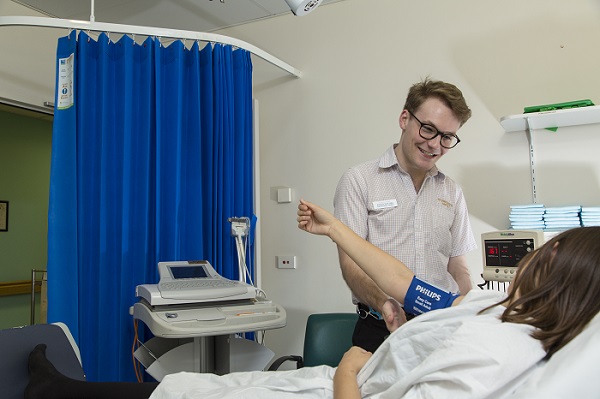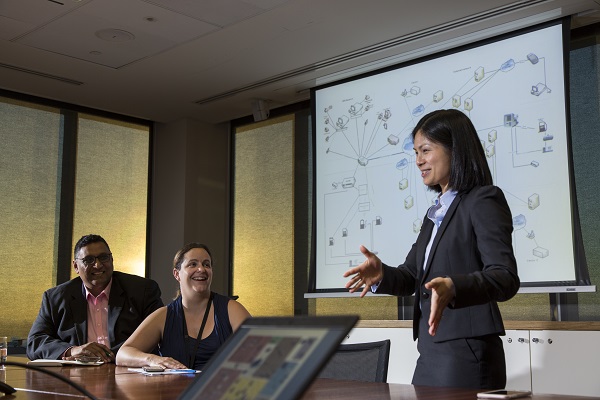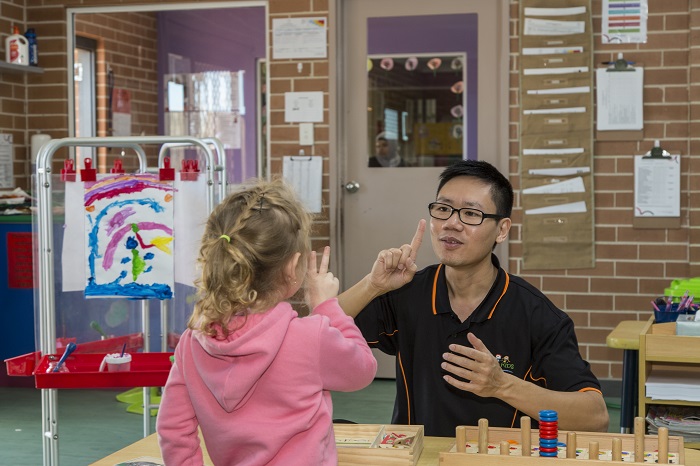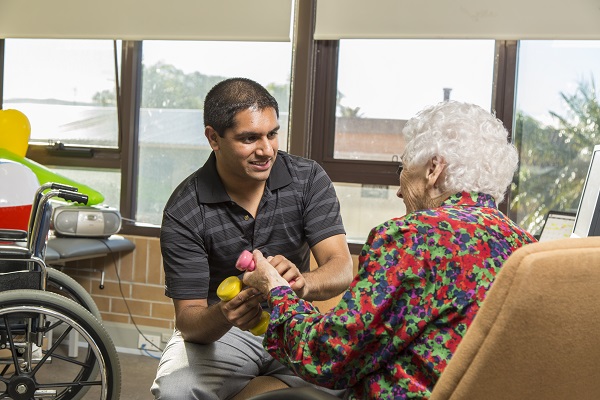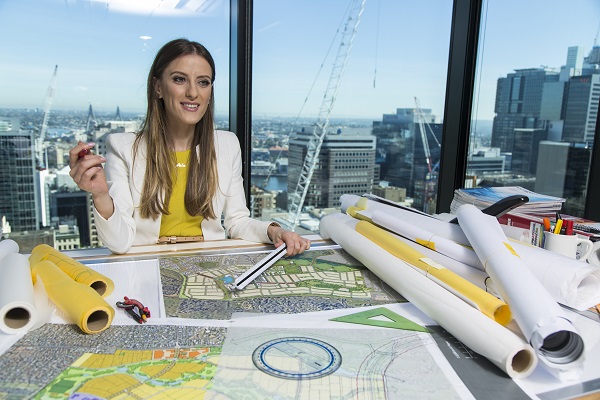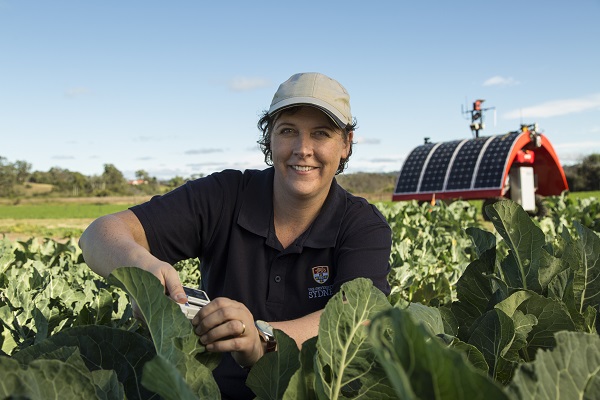Across Australia, women and men tend to work in different industries and occupations. Health care, social assistance and education are dominated by women; scientific and technical roles are dominated by men.
Stereotypes about the kinds of work women and men 'should' do limit people pursuing satisfying careers in non-traditional areas. Businesses and the economy also miss out on valuable skills and experience.
Let these stories inspire you about the kind of work you might enjoy.
Ethan - registered nurse
Nursing was a natural career choice for Ethan Watters. “I came from a very medical family,” he says. His grandmother worked in hospital administration, his grandfather delivered medical oxygen, his mother was a dental nurse, and his uncle had been a nurse before studying to become a doctor.
So determined was he to follow in their steps, he completed his first qualifications - a Certificate III in AIN (Assistant in Nursing) and then a one-year Diploma of Nursing - while he was still at high school studying for his Higher School Certificate.
He split his Year 12 study load over two years. After his HSC, Ethan got a job as an endorsed enrolled nurse (working under a Registered Nurse) in the Trauma Unit of the John Hunter Hospital in Newcastle. He used his qualifications to do a Bachelor of Nursing, finishing a year earlier because of his previous study, and is now considering a Masters year.
Rather than aiming for a medical degree, Ethan says he chose nursing because it has “more of a hands-on, humanistic aspect of healthcare than medicine”.
Now aged 21, and working as a Registered Nurse in emergency at St Vincent’s Hospital in Sydney, Ethan says he values the fact that nursing can lead into so many different career paths.
“It is not just listening to the doctor and blindly doing what they tell you on a ward in a hospital,” he says.
Helen - solution architect
When Helen Lau immigrated to Australia from Hong Kong with her family, the only thing the 10-year-old could understand in the classroom were numbers.
“Maths is just numbers and you don’t need to learn the language so that became the subject I enjoyed doing,” says Helen, now a Solution Architect in the IT Business Partner team for Caltex Australia.
Helen finished high school with exceptional grades in maths and science. After trying a year of interior design ("I couldn't see myself in 10 years just comparing shades of pink"); Helen transferred to a double degree of Bachelor of Engineering (Software) and Finance, graduating with honours.
As a Solution Architect, Helen says her role now is more about strategy, quality assurance and making sure the design is appropriate rather than programming, although she did plenty of programming in the early years of her career.
In a previous job, she worked on a system to automate road tolls on a motorway, and her most rewarding moments involve being able to see people using programs she worked on.
In order to have a successful career in software, Helen believes that people do not necessarily have to excel in maths: “Maths is essential in terms of problem solving, but it doesn’t mean you have to be really good at maths."
Quyen - early childhood educator
Quyen Huu Nguyen has taught every age group into adulthood and yet it is that early childhood phase, when children are learning to talk, that fascinates him the most.
“I get to know them very well and I see their developmental stages and that is the really interesting part of the job,” says Quyen, who works as an early childhood teacher at Community Kids Early Education Centre in Western Sydney.
Quyen trained as high school teacher in Vietnam, but after coming to Australia decided to study primary school teaching at Western Sydney University. Then, an internship at Penrith City Council developing an e-learning program put him in contact with pre-school children. He’s never looked back.
Quyen finds it rewarding to work with children when they are going through their most rapid development phase, between babyhood to six years of age.His ambition is to be part of the management team, allowing him to use his skills to oversee, develop and deliver the best outcomes for the children under his care.
“You don’t see that much development in high school. But, from nought to six years of age, their development changes really fast. It is not just about physical development, but it is also about language, social and emotional development.”
Getting young children ready for “big school” is an important function of childcare and preschool. When Quyen taught in primary school, he saw many children who were still struggling with literacy and numeracy.
"It is very satisfying knowing that I am contributing to and making a difference in their learning development."
Shiva - wellness and lifestyle manager
Shiva Gopalan thought he would be tending to footballers when he finished studying physiotherapy, but a part-time job in an aged care home changed the course of his career.
He started listening to and appreciating reminiscences of people his grandparents’ age and realised he could help improve the quality of their lives.
Shiva says he is building his career in aged care because he is inspired by the people he meets: “The main thing that keeps me in aged care is hearing these wonderful stories of what they have done in their lifetimes, because they are very inspiring people.”
Shiva, who now oversees around 60 staff and contractors in his role as Wellness and Lifestyle Manager for not-for-profit aged care provider Warrigal, says the staff who work at their care homes often develop a close relationship with them.
A high point for Shiva was the day he helped a man in his late 70s take his first steps after he was felled by a stroke.
"He hadn't stood for six years. After the first time he walked 15 metres, he sat down, literally in tears. He was so grateful and so happy that he was able to achieve that for himself."
Shiva says there were five females to every male in his four-year university degree in Health Sciences (Physiotherapy), but he encourages more young men to enter the field.
"I have developed a love for aged care and haven't looked back."
Rezarta - civil engineer
If Rezarta Rushitaj ever starts to wonder if she has chosen the right career as a Civil Engineer, all she has to do is take a drive up the motorway to get a shot of satisfaction.
“As an engineer, it is really exciting when you get to see your project being constructed. You see models and plans of a future road for months, and then to finally see it in real life is truly rewarding,” says Rezarta, who works in the Highways and Bridges team of AECOM, a multinational engineering company providing design and consulting services.
Rezarta is currently part of the road engineering design team working on WestConnex M4 East being delivered by the CPB/Samsung/John Holland (CSJ) joint venture. WestConnex is Australia's largest integrated transport project. On this project, Rezarta is responsible for road furniture design.
“In simple terms, this is just about everything you see on the road, from kerbs to road safety barriers, street lighting, traffic signals, signage, intelligent transport systems and so on. There are all sorts of codes and standards relating to how the road is designed. It is all about providing a safe road for the community,” she says.
Rezarta graduated from high school with good marks, winning the Dux of College award and a scholarship to study engineering at The University of Melbourne. She completed her Bachelor of Engineering degree with honours in 2011.
“High school students considering engineering must choose subjects that are prerequisites for an engineering degree such as maths, physics, chemistry and engineering studies. These were my favourite subjects,” she says.
"Every project is unique, every day you deal with a different problem and that makes it exciting. There is never an opportunity to be bored."
Margaret - scientist
Climbing up into the canopy of an old growth forest near the glaciers on the West Coast of New Zealand has been one of the highlights of Margaret Barbour’s career in science.
“I’ve worked in some awesome locations and travelled to some really neat parts of the world,” says Margaret, Associate Professor and Associate Dean (Research), Faculty of Agriculture and Environment and Deputy Director, Centre for Carbon, Water and Food at the University of Sydney.
To reach her current position Margaret completed a three-year undergraduate degree, a two-year master’s degree and a PhD at the Australian National University. Margaret says what she likes most about her job is being the first person ever to have an idea, and then being able to prove that the idea is right.
In one example, she thought it should be possible to measure the stable oxygen isotope composition of leaf water directly, without having to extract it first, by measuring the isotope composition of carbon dioxide that has exchanged with the water.
In proving this, she has been able to save a great deal of time for researchers, who can now take their measure in a few minutes, rather than a couple of hours; and feed into research used to help farmers improve crop production and save water.
“Understanding how the world works is what drives you.”
"I really enjoy stretching my mind to come up with new ideas... There's nothing like having a result that tells you 'yes, I was right'."
